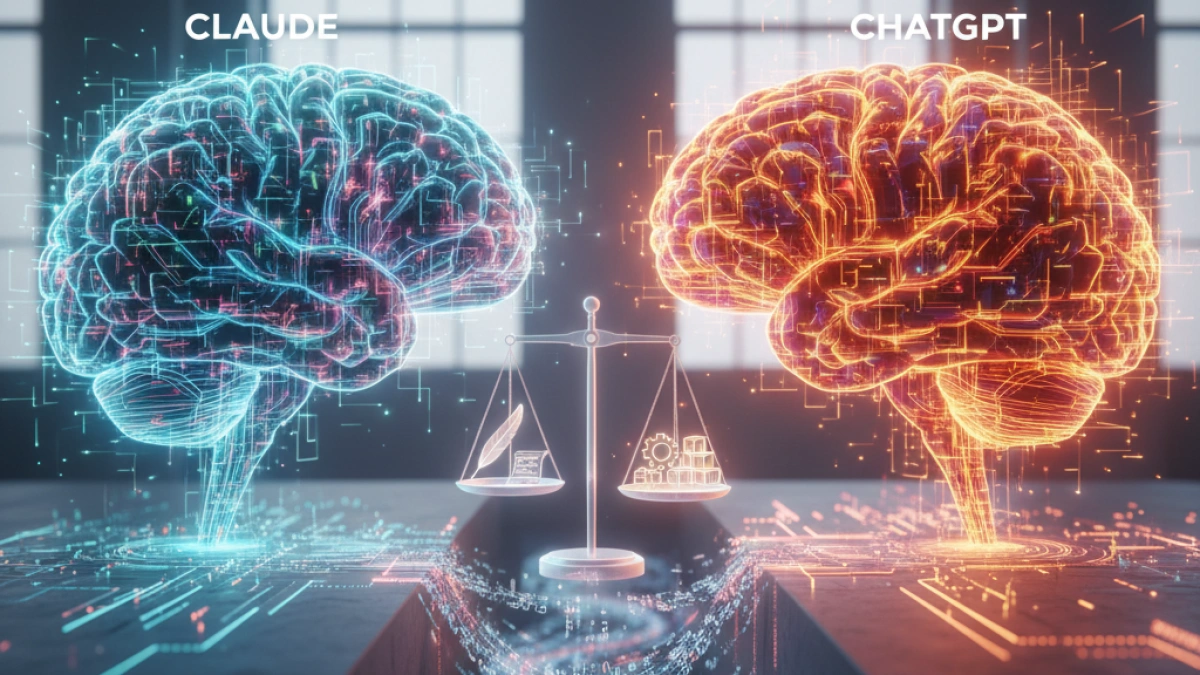Claude: Everything about its functioning, advantages, and disadvantages compared to ChatGPT


In the current landscape of artificial intelligence, Claude, developed by Anthropic, has emerged as a prominent competitor in the field of language models. This article delves into Claude's features, its operation, and how it stands out as a superior or inferior option compared to ChatGPT and other AI models.
What is Claude?
Claude is a conversational artificial intelligence model that allows users to interact by typing questions or commands. This system is classified as a Large Language Model (LLM), just like ChatGPT, Google Gemini, and Microsoft Copilot. The AI model has been designed to understand natural language, enabling users to communicate with it in a way similar to how they would with a person.
Created by Anthropic, a company founded by former OpenAI employees, Claude has evolved through various versions. Each release, such as Claude 3 or Claude 4, represents improvements in the underlying engine that powers the conversational intelligence. Moreover, Anthropic's mission is not only to develop a powerful and capable model, but also to foster an AI aligned with human values and interests. The company focuses on building a model that acts ethically and responsibly, guided by principles of transparency, accountability, and trust.
This means that Claude has the ability to recognize its own risks and take steps to mitigate them, ensuring its use is safe and beneficial for users.
How does Claude work?
Claude operates based on a large-scale language model. Like other artificial intelligence models, it has been trained on vast amounts of text, allowing it to learn how humans communicate. When a user asks a question or makes a request in natural language, Claude processes the information through complex algorithms that analyze the context and intention behind the request. It then generates a response in a natural language format that is coherent and easy to understand.
Claude utilizes both an internal database developed during its training and the ability to perform internet searches to provide concise and up-to-date answers. It is important to note that, despite its capacity for natural interaction, Claude is not truly "intelligent" in the human sense; rather, it employs algorithms to interpret questions and produce coherent responses.
Advantages of Claude
Among the features that distinguish Claude is its minimalist and organized interface, which provides a clear user experience. Additionally, it offers excellent text comprehension capabilities, even in its free version. Often, Claude's responses are perceived as more human and empathetic, as well as being more direct and to the point, although this may depend on user expectations.
One of Claude's strengths is its ability to analyze long documents and complex texts in greater depth. The responses it generates tend to be more ethical, avoiding restrictive fields that may limit conversation.
The model also demonstrates a notable capacity for performing tasks that require step-by-step reasoning and is efficient in creating and modifying code when requested. Furthermore, Claude offers users the option to choose different response styles, adjusting to needs for greater conciseness or more detailed explanations. It also incorporates connectors that allow interaction with external applications, such as Spotify or Brave.
Disadvantages of Claude
Despite its virtues, Claude has certain limitations compared to competing models. In particular, its availability of plugins and additional tools is lower than that of options like ChatGPT or Google Gemini. Although Claude has some "artifacts," its lesser popularity means a reduced offering in this area. Additionally, in certain cases, other models may have more up-to-date information on specific topics.
In terms of response speed, some versions of Claude can be slower, and it also lacks direct integrations with third-party services, unlike competitors that do have this capability, such as Gemini with Google services and ChatGPT with its partners.
Another limitation to consider is that Claude does not have the ability to create drawings in the way that ChatGPT does. While it could generate images through code, it is not designed for creating graphic illustrations, which is an important drawback.
Economically, Claude offers more affordable payment plans compared to its competitors. Its Pro plan is available for 15 euros per month, while the most advanced plan costs 90 euros per month. In contrast, ChatGPT's prices are $20 and $200, and Gemini's range from 22 to 275 euros per month.
Conclusion
Claude is a conversational artificial intelligence model known for its ethical approach and analytical capability. Despite its disadvantages in terms of additional functionalities and speed, its clear interface and ability to provide coherent responses make it a valuable option in the competitive field of language models. This positions it as a worthy competitor against ChatGPT and other alternatives in the market. For those interested in exploring more about Claude and its features, evaluating its usage options and comparing it with other models can be an enriching experience.
For more content on artificial intelligence and its applications, keep exploring my blog.



















